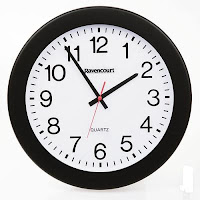If as in the previous posts you
can accept that,
1)
There are negative concepts that would not exist
except that there is an antecedent positive.
2)
These concepts are not without being assigned a value.
3)
The values of “good” and “bad” or “evil” are
found to exist broadly and historically.
4)
“Good”
and “Evil” cannot be equivalent opposites since one is dependent upon the
other.
5)
Just as you push “Evil” forward and find chaos,
so too you push “Good” back and you find purer forms of same.

Then comes the question, “What is
the ultimate perfect “Good?”
ORIGIN
OF ULTIMATE “GOOD”
Following are some options that you might choose.
The Spiritual
or New Age Truth Paradigms would suggest that ultimate and pure “good” is
found within and thus has been there all along.
However, such is highly subjective and the subjective will eventually break
down.
The Postmodern Truth
Paradigms rejects all notions of the existence of all universals to include "good" or "normal." So then the concept of "good" is purely individual.
Again, this is highly subjective and thus fragile.

The
Evolutionary Truth
Paradigm would suggest that “good” is not as pure in the past as it will be
as man continues up the evolutionary trail.
The problem here is that
there is no constant notion of “good” as it is ever changing.
The Secular or
Modernism Truth Paradigms would suggest that “good” though currently not
quantifiable one day will be measurable and thus processes for improving “good”
will follow. The problem in this view is
that today’s good is not tomorrow’s good.
The Materialistic
Truth Paradigm suggests that “good” will develop and it is simply a matter
of thesis, antithesis, and synthesis.
The obvious problem here is that in their purest form one cannot combine
“good” and “evil” in order to develop some sort of a "grey area" synthesis.
However, there is one more truth
paradigm which may provide a more stable understanding of “good.”
The Divine
Truth Paradigm suggests that “good” is based upon divinely revealed
truth. Because this truth is rooted in a
holy book like the Jewish Scriptures, the Christian Bible, the Book of Mormon,
the Quran, or some other holy writing, there is a stable platform.

That stable platform does not change and
thus provides the one who reads and obeys that particular writing with the
criterion for valuing something or even someone as being “good” or “evil.”
What is interesting is those same standards
apply today as they did 2,000 years ago or even at its writing.
Will the standards of “good” and “evil”
differ from belief to belief? Of course,
but that is not the point nor is it to be discussed at this juncture. The simple point is that people with a Divine Truth Paradigm have a more stable
standard of “good” and “evil” by which to order their lives.
OUTCOMES

Some years ago I
had a car that the driver had to be ever vigilant. It was, “always looking.”
That is to say that it could never find a
spot in the lane where it would become stable.
So it is with
many of the truth paradigms presented above. Though they would all agree that there is
such a thing as “good’ they would not agree as to the origin and stability of same. It is as with that car, there is always a quest. It may by an overt attempt at finding “good”
or it may almost be subconscious, but none-the-less it is there.
In order to confidently
function in life, one needs a steady platform.
As it turns out there is but one which maintains a truth paradigm in
which one might have confidence. That is
the final one presented above, the divine truth paradigm.
Perhaps that is
why approximately 82% of the earth’s population embraces some form of a divine truth paradigm. Just maybe it is because such a truth paradigm provides what is needed for the individual to establish and maintain a sense of well-being, a sense of confidence, and a sense of purpose.
Viewed another way, if such stability is not present when problems arise, there is little stability upon which to rely. It is as the Bible says, "The winds blew, the rains beat upon the house, and it stood firm." Why? Because it was built upon a stable foundation--a foundation of Truth.
 A man went to a barber shop to have
his hair cut and his
beard trimmed. As the barber began to work, they began to have a good
conversation. They talked about so many things and various subjects.
A man went to a barber shop to have
his hair cut and his
beard trimmed. As the barber began to work, they began to have a good
conversation. They talked about so many things and various subjects.  “No!” the customer exclaimed.
“Barbers don't exist because if they did, there would be no people with dirty
long hair and untrimmed beards, like that man outside.”
“No!” the customer exclaimed.
“Barbers don't exist because if they did, there would be no people with dirty
long hair and untrimmed beards, like that man outside.” 








